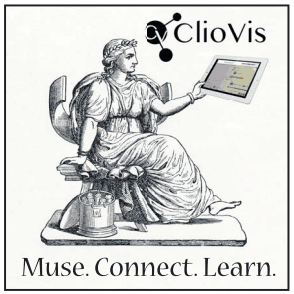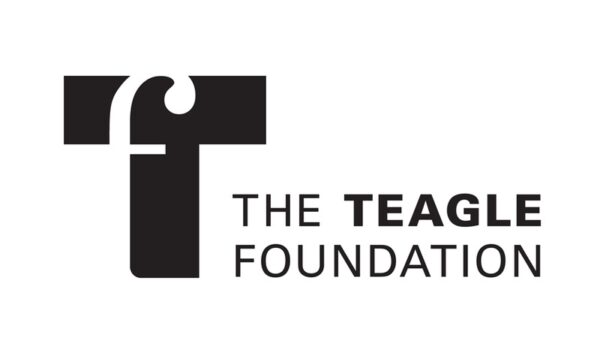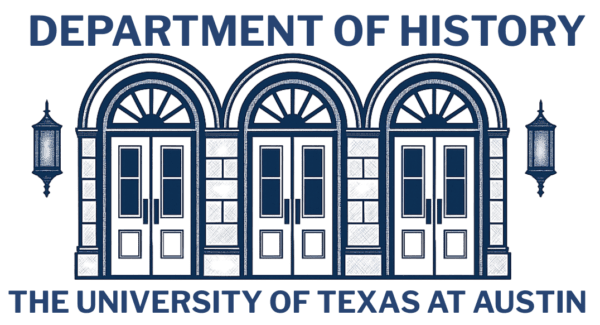Event Description
The 2025 Texas Conference on Introductory History Courses took place Friday, October 24 and Saturday, October 25 at University of Texas at Dallas in Richardson. This statewide conference focused on issues, challenges, and opportunities associated with introductory courses in US and world history that many students will encounter at several stages in their education, whether in middle and high schools, community colleges, or four-year universities. Attendees participated in workshops, networked with colleagues from across the region, and heard from leading history educators. We invited educators at all levels to join us in discussing our shared interest in student success.
The conference was free to attend and meals were provided.
Program Highlights
View the full program here.
- Attendees had opportunities to discuss the implications of artificial intelligence, state legislative developments, and the K–12 social studies standards revisions currently underway. We shared resources and strategies on how to advocate for teaching history with integrity in the current political climate, so that we can continue to support students’ history education and the vital intellectual, civic, and career skills that our discipline offers.
- The Center for Presidential History at Southern Methodist University co-sponsored this year’s conference. Experts from the center provided ideas for how to teach courses that put the American presidency in historical context for today’s students.
- Elizabeth Mayer, Assistant Commissioner for Academic and Health Affairs at the Texas Higher Education Coordinating Board, gave an update on the state’s student success and completion efforts and answered attendee questions, including on state policy changes for higher education. View her presentation slides here.
- Teaching Presidential History Today: What Has Changed? A plenary roundtable on the U.S. presidency and how teaching the history of U.S. presidency has changed over time, featuring Sarah Coleman, Sharron Conrad, Jeffrey Engel, and Kaete O’Connell
Featured Speakers
 Sarah Coleman, Associate Professor, Texas State University
Sarah Coleman, Associate Professor, Texas State University
Sarah Coleman is a historian of 20th century America. Her research is focused on the intersection of politics and public policy. Her teaching focuses on political history, public policy development and immigration history. Dr. Coleman is the author of The Walls Within: The Politics of Immigration in Modern America (Princeton University Press, 2021) which traces the struggle of politicians, activists, interest groups, communities and the courts to define the rights of immigrants in the United States after the passage of the Hart-Celler Act of 1965. The Walls Within was named the winner of the Theodore Saloutos Book Award for best book on any aspect of the immigration history of the United States from the Immigration and Ethnic History Society. Dr. Coleman’s current research explores the political power and impact of Sam Rayburn, a figure whose influence in the corridors of American power and policymaking resonated for more than half a century. Sam Rayburn served as Speaker of the House of Representatives three separate times for a total of over 17 years. Through previously unexplored archival materials, this work will provide new insights Rayburn’s leadership and decision-making and how Congress successfully passed legislation that addressed questions of grave consequence for the nation during Rayburn’s time. This work will offer critical lessons for today on addressing partisan polarization, building consensus, developing institutional respect, and achieving bipartisan legislative accomplishments. Dr. Coleman holds a BA from Yale University, a MPhil from the University of Cambridge and a PhD in History from Princeton University. She was a Postdoctoral Fellow at the Center for Presidential History at Southern Methodist University.
 Sharron Conrad, Professor, Tarrant County College
Sharron Conrad, Professor, Tarrant County College
Sharron Conrad is Professor of History at Tarrant County College in Fort Worth, Texas, and a Senior Fellow at Southern Methodist University’s Center for Presidential History. In 2019 she received a Ph.D. in Humanities from The University of Texas at Dallas. Her fields of study include American Presidents and Civil Rights, 1789–Present; 18th–20th Century African American Literature and Criticism; and American History Through Film. Her book, The Trinity: John F. Kennedy, Lyndon B. Johnson, and Civil Rights in African American Memory, reveals how communities create historical truths—elevating some leaders, sidelining others, and preserving their own visions in defiance of the official record. It will be released by The University of North Carolina Press in May 2026. Conrad’s approach is interdisciplinary, using oral histories, memoirs, letters, music, films, newspapers, magazines, public polling data, photographs, and visual art to illuminate how memories serve as hidden transcripts that communicate which aspects of the past are worthy of reverence, and which are not.

Jeffrey A. Engel, Founding Director, Center for Presidential History, Southern Methodist University
Jeffrey A. Engel is founding director of the Center for Presidential History at Southern Methodist University, Professor in the William P. Clements Department of History, and a Senior Fellow of the John Goodwin Tower Center for Political Studies. Trained at Cornell University, Oxford University, and Yale University, he received his PhD in American History from the University of Wisconsin-Madison in 2001. Having previously taught at Yale University, the University of Pennsylvania, and Texas A&M University where he was the Kruse ’52 Professor and received recognition for his teaching at the college, university, and system levels. Engel is author or editor of thirteen books on American foreign policy and the American presidency, including his latest, When the World Seemed New: George H.W. Bush and the End of the Cold War and the co-authored Impeachment: An American History. He is currently writing Seeking Monsters to Destroy: How America Goes to War, From Washington to Biden and Beyond (Oxford University Press). Engel currently teaches SMU’s largest history course, “Presidents at War,” with 160 students in attendance. In 2019 SMU’s Resident Life Students named him their campus-wide Hope Professor of the Year.
 Ted Hadzi-Antich, Jr., Austin Community College
Ted Hadzi-Antich, Jr., Austin Community College
Ted Hadzi-Antich, Jr. is Associate Professor of Government, Founder of The Great Questions Project and member of the Honors faculty at Austin Community College, where he has taught for over 17 years. Ted is the Founder and Executive Director of The Great Questions Foundation 501c3, which seeks to promote discussion-based learning at Community Colleges.
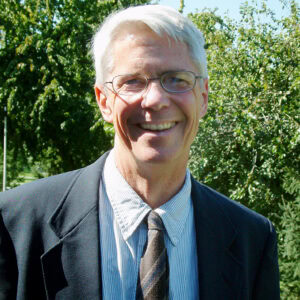 Warren R. Hofstra, Shenandoah University
Warren R. Hofstra, Shenandoah University
Warren R. Hofstra is Stewart Bell Professor of History at Shenandoah University in Winchester, Virginia. He is currently engaged in a collaborative project in the field of virtual reality and immersive learning: “‘The Great Experiment’: Re-Debating the Electoral College in Virtual Reality.” A companion volume, “‘Perfectly Novel:’ The Intellectual Origins of the Electoral College,” is in preparation.
 Elizabeth Mayer, Texas Higher Education Coordinating Board
Elizabeth Mayer, Texas Higher Education Coordinating Board
Elizabeth Mayer joined the Texas Higher Education Coordinating Board in May 2020 as its Director of Policy and in February 2022, became its Assistant Commissioner for Academic and Health Affairs. Ms. Mayer leads the Academic Health Affairs (AHA) Division, which provides leadership, guidance, expertise, and resources to improve the efficiency and quality of higher education in Texas. The AHA Division promotes the goals of the agency’s refreshed strategic plan, Building a Talent Strong Texas, and facilitates collaborative solutions with Texas higher education institutions. Under her leadership, the division develops new degree and certificate programs that are responsive to workforce needs, encourages quality and equity across the higher education landscape, and drives student completion. AHA is also responsible for the administration and management of more than $200 million in grant funding to support Texas public higher education. Ms. Mayer began her career in higher education at the Coordinating Board in 2008 as a Program Director. In 2013, she joined the staff at UT System where she served as a Senior Research and Policy Analyst focusing on issues of affordability, dual credit, transfer, and educator preparation. Ms. Mayer has a Master’s in Public Affairs from the LBJ School of Public Affairs at The University of Texas at Austin and a bachelor’s degree in International Relations and Diplomacy from Seton Hall University.
 Kaete O’Connell, Senior Fellow, Southern Methodist University
Kaete O’Connell, Senior Fellow, Southern Methodist University
A historian of the United States and the world, Kaete O’Connell uses food as a lens to explore the intersection of conflict and culture—how fertilizer, beer, or a presidential state dinner can reveal the workings of power. Her first book, Recipe for Democracy: U.S. Food Power, Occupied Germany, and the Origins of the Cold War (University of Virginia Press, 2026), traces how U.S. food policy helped shape the postwar order. She is currently at work on two projects: one on how presidents have wielded food as a diplomatic tool, and another on the cultural and political turning points of 1948. O’Connell combines scholarly leadership with teaching and program development, serving as Deputy Director of the Society for Historians of American Foreign Relations (SHAFR). She has taught across history, American studies, and global affairs departments in both Germany and the United States, offering courses on U.S. food power, grand strategy, and World War II. Before joining SMU, she was Assistant Director of the Brady-Johnson Program in Grand Strategy at Yale University. Her work has been supported by the Leibniz Institute of European History, the German Historical Institute, the Mandel Center for Advanced Holocaust Studies, and several U.S. presidential libraries. In 2024, O’Connell was named a WWII Emerging Scholar by the U.S. National Archives and Records Administration. She earned her PhD from Temple University.
Sponsors
We are grateful for our sponsors, whose generous support make this conference possible.
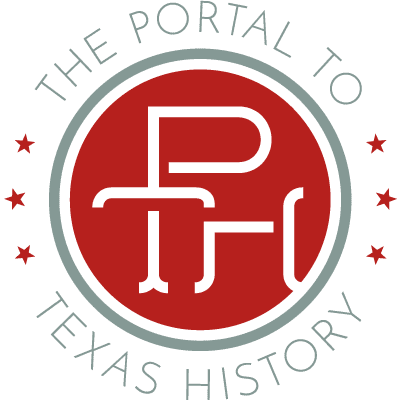
The Portal to Texas History
Questions?
For more information, email Rachel Wheatley at rwheatley@historians.org.
Other Events

August 28 - 29, 2015
2015 Texas Conference on Introductory History Courses

August 5 - 6, 2016
2016 Texas Conference on Introductory Courses

September 15 - 16, 2017





